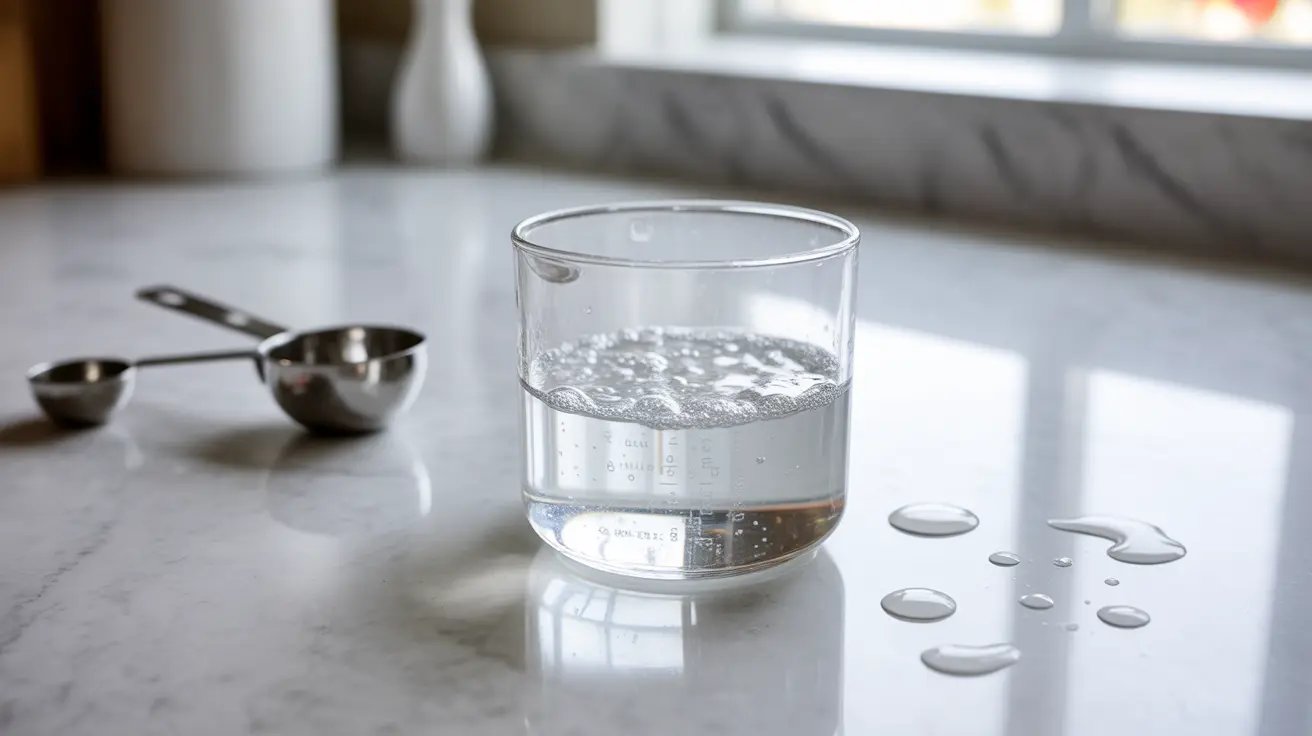Hydrogen peroxide mouthwash has gained popularity as a potential solution for oral health concerns, from teeth whitening to treating minor mouth irritations. While this common household chemical can be effective for oral care when used properly, it's crucial to understand the correct usage, benefits, and potential risks before incorporating it into your dental hygiene routine.
In this comprehensive guide, we'll explore how to safely use hydrogen peroxide as a mouthwash, its various benefits, and important precautions to keep in mind. Understanding these aspects will help you make an informed decision about whether this solution is right for your oral health needs.
Safe Usage Guidelines for Hydrogen Peroxide Mouthwash
The key to safely using hydrogen peroxide as a mouthwash lies in proper dilution and application techniques. Start with a 3% hydrogen peroxide solution, which is the concentration typically available at drugstores.
Proper Dilution Method
Mix equal parts 3% hydrogen peroxide and water to create a safe mouthwash solution. For example, combine one tablespoon of hydrogen peroxide with one tablespoon of water. Never use undiluted hydrogen peroxide, as this can irritate your mouth tissues and potentially damage your enamel.
Correct Application Steps
- Measure equal parts hydrogen peroxide and water
- Mix thoroughly in a clean cup
- Swish the solution gently for 30-60 seconds
- Spit out completely; do not swallow
- Rinse your mouth thoroughly with plain water
Benefits of Hydrogen Peroxide Mouthwash
Oral Health Advantages
When used correctly, hydrogen peroxide mouthwash can provide several benefits for oral health:
- Reduces bacteria that cause gingivitis
- Helps heal minor mouth sores
- Alleviates mild sore throat symptoms
- Freshens breath by killing odor-causing bacteria
Teeth Whitening Effects
The oxidizing properties of hydrogen peroxide can help remove surface stains from teeth, leading to a whiter appearance over time. However, results are typically mild compared to professional whitening treatments, and consistent use is necessary to maintain any whitening effects.
Potential Risks and Side Effects
While hydrogen peroxide mouthwash can be beneficial, users should be aware of potential side effects:
- Temporary tooth sensitivity
- Gum irritation or burning sensation
- Altered taste sensation
- Possible enamel weakening with prolonged use
If you experience any persistent discomfort or unusual reactions, discontinue use and consult your dentist immediately.
Safe Usage Frequency
To minimize potential risks while maximizing benefits, follow these frequency guidelines:
- Use no more than 2-3 times per week
- Limit sessions to once per day when using
- Take breaks between usage periods
- Consider alternating with regular mouthwash
Frequently Asked Questions
How do I safely use hydrogen peroxide as a mouthwash without damaging my mouth?
Always dilute 3% hydrogen peroxide with an equal amount of water. Swish gently for 30-60 seconds, spit out completely, and rinse thoroughly with water. Never swallow the solution or use it undiluted.
What are the benefits of using hydrogen peroxide mouthwash for sore throat, teeth whitening, and gum health?
Hydrogen peroxide mouthwash can help reduce bacteria causing sore throat, gradually whiten teeth through its oxidizing properties, and improve gum health by fighting harmful bacteria. It's particularly effective for treating minor gum inflammation and mouth sores.
What side effects or risks should I watch for when using hydrogen peroxide mouthwash?
Watch for signs of tooth sensitivity, gum irritation, burning sensations, or changes in taste. If you experience persistent discomfort or unusual reactions, stop using the solution and consult your dentist.
Can children or people with sensitive mouths use hydrogen peroxide mouthwash safely?
It's not recommended for children or individuals with sensitive mouths to use hydrogen peroxide mouthwash. These groups should stick to dentist-recommended oral care products specifically designed for their needs.
How often should I use hydrogen peroxide mouthwash to avoid irritation or enamel erosion?
Limit use to 2-3 times per week, once per day, to prevent potential enamel erosion or tissue irritation. Take breaks between usage periods and consider alternating with regular mouthwash for optimal oral health.




